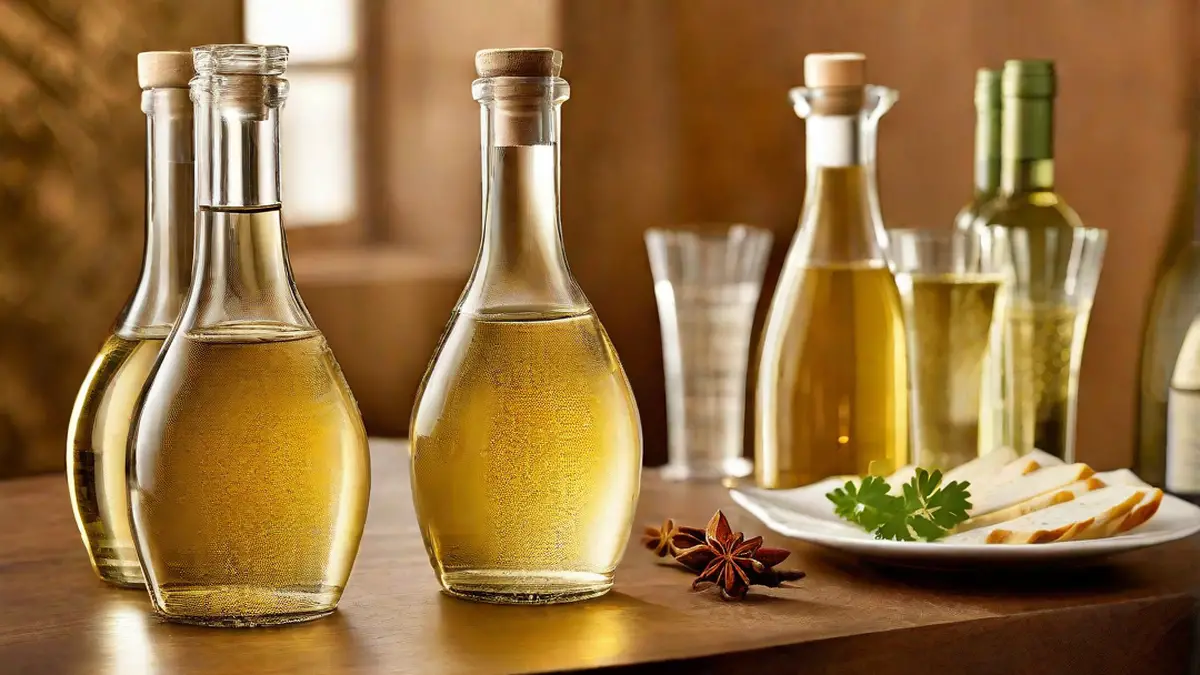Is white cooking wine the same as white wine vinegar? This question often arises among amateur cooks when they come across a recipe specifying one of these ingredients. As a wine aficionado and avid home chef, I decided to delve into this topic more deeply and offer some findings.
Understanding White Cooking Wine
White cooking wine, as the name suggests, is a type of wine that is specifically made for cooking purposes. It is typically low in alcohol content and often includes added salt to preserve its flavor. White cooking wine is commonly used in various dishes to enhance flavors, tenderize meat, and deglaze pans.
When using white cooking wine in your recipes, it’s essential to choose a good quality one. Opt for a cooking wine that you would also enjoy drinking, as the flavors of the wine will still be present in your dish. This means that if you dislike the taste of the cooking wine, it’s likely that you won’t enjoy the flavor it imparts to your food either.
Exploring White Wine Vinegar
On the other hand, white wine vinegar is made through the fermentation process of white wine. It undergoes a second fermentation process that converts the alcohol into acetic acid, giving it a sharp and tangy flavor. White wine vinegar is commonly used in salad dressings, marinades, and pickling liquids.
Unlike white cooking wine, white wine vinegar is not suitable for drinking due to its strong acidity. However, it is a versatile ingredient that adds a bright and acidic punch to dishes.
Are They Interchangeable?
While white cooking wine and white wine vinegar share a similar origin, they have distinct differences in terms of flavor and purpose. As a result, they are not directly interchangeable in recipes.
If a recipe calls for white cooking wine and you decide to substitute it with white wine vinegar, be prepared for a significant change in taste. White wine vinegar has a much stronger and more acidic flavor profile compared to white cooking wine. It can overpower the other ingredients in the dish and result in an unbalanced flavor.
Similarly, substituting white wine vinegar with white cooking wine may not yield the desired results. The milder flavor of white cooking wine may not provide the necessary acidity and tanginess that white wine vinegar brings to a recipe.
My Personal Take
As someone who loves experimenting in the kitchen, I have used both white cooking wine and white wine vinegar in various recipes. I find that each ingredient has its own unique role and contributes differently to the final dish.
When I’m looking to enhance the flavors of a dish or add a subtle hint of acidity, I reach for white cooking wine. It adds depth and complexity without overpowering the other ingredients. On the other hand, when I want to brighten up a salad dressing or give a marinade an extra kick, white wine vinegar is my go-to choice.
Ultimately, the decision between using white cooking wine or white wine vinegar depends on the specific recipe and the flavor profile you want to achieve. It’s worth having both ingredients in your pantry to cater to different culinary needs.
Conclusion
In conclusion, while white cooking wine and white wine vinegar may share a similar origin, they are distinct ingredients with different purposes and flavors. Understanding their differences and knowing when to use each one can elevate your cooking and bring out the best flavors in your dishes. So, the next time you come across a recipe that calls for one or the other, you’ll be able to make an informed decision and create culinary masterpieces.
